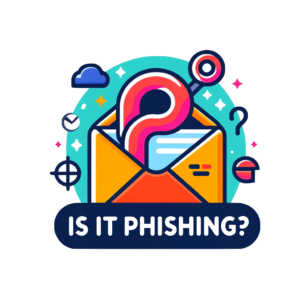New AI service to help combat phishing emails

Introducing “Is it Phishing?” – Sorted Solution’s New AI Service to Help Combat Phishing Emails
[Seattle, WA] – Sorted Solution, a leading IT company renowned for its dedication to cybersecurity, is excited to announce the launch of its new AI-powered service, “Is it Phishing?” This innovative service aims to help individuals and organizations stay safe from malware, phishing, and ransomware attacks.
For years, Sorted Solution has offered a no-shaming policy to clients in which users could feel safe and forward any suspicious emails to our team for analysis. This proactive approach has successfully prevented numerous breaches, data losses, and cyber-attacks. Now, we are taking this commitment a step further with the introduction of “Is it Phishing?”
“Is it Phishing?” – How It Works
1. Automated Email Analysis: Simply forward any questionable email to phish@sortedsol.com. Our advanced AI will immediately analyze the email to determine if it is safe or potentially harmful.
2. Detailed Report: You will receive an instant reply with a detailed analysis of whether the email appears to be dangerous or safe. The report will include the characteristics that led to the conclusion and recommended next steps.
3. Human Follow-up: Each analyzed email is assigned a unique ticket number. If you wish to follow up with a human expert or if you suspect a compromise, you can contact the Sorted Solution team with the ticket number for further assistance.

“Our goal with Is it Phishing? is to provide a rapid and reliable response to potential cyber threats, leveraging the power of AI to enhance our clients’ security. This service not only ensures faster turnaround times but also empowers users with actionable insights to protect themselves from cyber-attacks. On top of that, we also added a bit of humor— we can not only lighten the mood in these stressful circumstances but also reinforce the importance of recognizing and handling phishing emails effectively.”
About Sorted Solution
Sorted Solution is committed to providing top-notch IT services and cybersecurity solutions. With a strong focus on client education and support, we strive to create a secure digital environment for businesses of all sizes. Our services are designed to be accessible, user-friendly, and highly effective in combating the ever-evolving landscape of cyber threats.
For more information about “Is it Phishing?” or any of our other services, please contact us.
 To check if your EMAIL has been compromised, go here:
To check if your EMAIL has been compromised, go here: